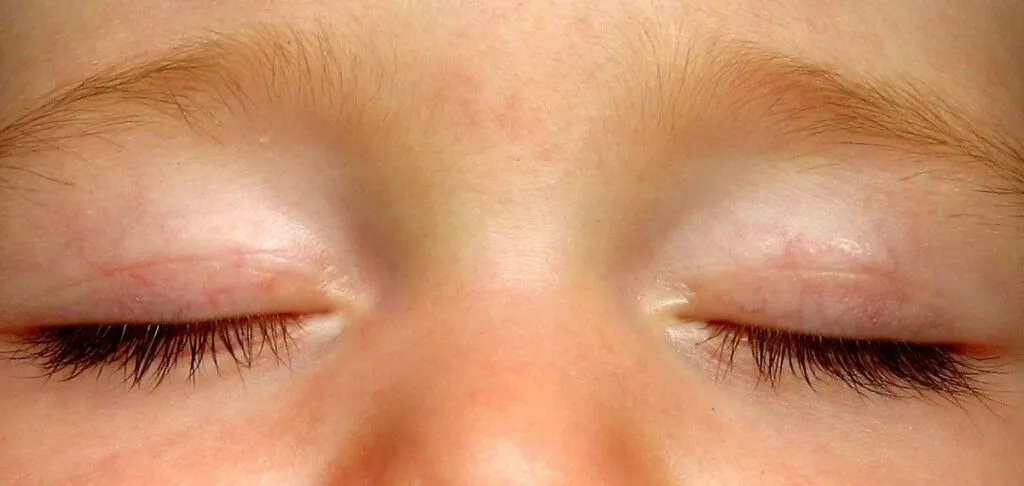

We rarely track the phases of the moon on a calendar, often dismissing it as unimportant. Yet, each lunar phase is believed to affect our well-being in various ways, some more subtly than others.

Historical and Cultural Beliefs
Ancient Understanding of Lunar Influence
Throughout history, the moon has held a significant place in human culture and daily life. Ancient civilizations often relied on both solar and lunar calendars to plan their activities.
For instance, medicinal herbs were traditionally harvested during the full moon when their healing properties were thought to be strongest. Hair was cut during the waning moon to promote slower regrowth, and the timing of planting and harvesting crops was frequently aligned with the moon’s phases.
A popular saying encapsulates this belief: “If you sow on the moon, you will harvest twice.”

Lunar Phases and Human Behavior
Many traditional beliefs suggest a connection between the moon’s phases and human behavior. For example, there is a longstanding notion that during the full moon, individuals may exhibit unusual behavior, such as committing crimes or experiencing sleepwalking episodes.
Additionally, the menstrual cycle’s duration, which closely aligns with the lunar month, has been a topic of fascination, hinting at a possible intrinsic link between lunar phases and human physiology.
Loss of Ancient Knowledge
In modern times, society has largely moved away from tracking lunar phases, neglecting the ancient wisdom that once guided daily activities. While traditional practices are often dismissed as superstitions today, some argue that these practices were based on observations and understandings that modern science is only beginning to explore.
The ancient focus on the lunar calendar was not merely for ritualistic purposes but was intertwined with practical aspects of health, agriculture, and social planning.
Scientific Perspectives on Lunar Influence
Gravitational Effects and Human Physiology
The Moon’s gravitational pull is most visibly evident in the creation of ocean tides. Additionally, it causes periodic deformations of the Earth’s crust, typically around 50 centimeters vertically and about 5 centimeters horizontally.
Given that the human body is composed of approximately 60% water, scientists have hypothesized that the Moon might exert a similar gravitational influence on us.
However, the tidal forces affecting a human are minuscule compared to those acting on vast ocean bodies, making any direct physiological impact highly unlikely.
Electromagnetic and Ionization Hypotheses
Beyond gravity, some theories suggest that the Moon’s phases might alter the degree of ionization in the Earth’s atmosphere and its electromagnetic field. These changes could, in theory, influence human biology.
Inside our cells, the presence of positively charged electrolytes (such as sodium, potassium, calcium, and magnesium) and negatively charged electrolytes (like chlorides and phosphates) creates an intricate “magnetic-electrical” balance. Even minor external ionic influences could potentially disrupt this balance, possibly affecting our well-being.
While this idea is intriguing, scientific research has yet to provide concrete evidence supporting significant lunar-induced electromagnetic effects on human health.
Psychological Influences and Perception Bias
The belief in the Moon’s influence on behavior and health may also be reinforced by psychological factors.
Confirmation bias—where individuals remember events that support their beliefs and forget those that do not—can make lunar effects seem more pronounced than they are.
For instance, if someone believes that a full moon causes erratic behavior, they are more likely to notice and remember incidents that occur during this phase while ignoring others.
Additionally, the brightness of the full moon can disrupt sleep patterns, potentially leading to increased irritability or stress, which might be mistakenly attributed to the lunar phase itself rather than environmental factors.
Research Findings and Scientific Consensus
Numerous studies have investigated the Moon’s impact on various aspects of human behavior and health, with mixed results. Some research suggests slight correlations between lunar phases and incidents like crime rates, hospital admissions, or sleep disturbances.
However, many of these studies suffer from methodological limitations, such as small sample sizes or lack of control for confounding variables.
The prevailing scientific consensus remains skeptical about the Moon’s significant influence on human physiology and behavior. Most scientists agree that while the Moon undeniably affects the Earth in tangible ways, its direct impact on individual health and actions is minimal to nonexistent.

Modern Applications and Practical Implications
Chronotherapy and Eastern Medicine
Building on traditional beliefs, modern practices like chronotherapy have emerged, attempting to align medical treatments with the body’s natural rhythms influenced by lunar phases.
Chronotherapy, rooted in principles similar to those of Eastern medicine, posits that each major organ in the human body undergoes a “tidal wave” of activity throughout the day. This method schedules the administration of medications and physical therapies to coincide with these peak activity periods, potentially enhancing their effectiveness.
For example, herbal medicines might be most potent during specific lunar phases when the body’s energy channels, or “qi” and “prana,” are believed to be optimally receptive.
Eastern traditions, such as those practiced by Indian yogis, also emphasize the synchronization of physical exercises with the moon’s phases to maintain health and longevity.
By targeting exercises to the body’s energy flow—focusing on the lower spine during the new moon or the head during the waning moon—practitioners aim to address specific health issues more effectively.
Modern researchers investigating chronotherapy suggest that aligning medical interventions with these natural cycles could maximize therapeutic outcomes, although more rigorous scientific validation is needed to substantiate these claims.
Survey Insights and Public Perception
A recent survey conducted among 404 individuals sought to understand public perceptions of the moon’s influence on health and behavior.
The findings revealed a diverse range of beliefs:
- 43-49% of respondents felt that lunar phases had no impact on their well-being.
- 24% reported experiencing a decline in health during the full moon.
- 14% felt better during the full moon.
- 20% noticed an increase in vitality during the waxing moon.
These patterns suggest that while a significant portion of the population remains skeptical, a notable minority perceives tangible effects related to lunar phases.
Such perceptions may be influenced by cultural backgrounds, personal experiences, or psychological factors like confirmation bias, where individuals are more likely to remember events that align with their beliefs about the moon.
Practical Advice Based on Lunar Phases
Despite the mixed scientific evidence, many individuals and practitioners continue to follow lunar-based guidelines for health and lifestyle decisions.
Here are some traditional recommendations aligned with the moon’s phases:

New Moon
- Cleansing and Detoxification: The new moon phase is considered ideal for purification rituals and detoxifying the body. Practices such as fasting, quitting smoking, or ending unhealthy relationships are believed to be more effective during this time.
- Initiating New Endeavors: Starting new projects or making significant life changes is recommended, as the new moon symbolizes new beginnings and growth.

Waxing Moon
- Enhancing Vitality: As the moon grows fuller, it’s seen as a time to increase energy levels. Taking vitamins, engaging in strengthening exercises, and performing cosmetic procedures are encouraged to capitalize on this surge.
- Caution Against Overindulgence: While assimilation of nutrients is enhanced, excessive consumption can lead to weight gain. Maintaining a balanced diet is advised to avoid negative consequences.

Waning Moon
- Surgical Interventions: The waning phase is favored for surgeries and medical procedures, as wounds are believed to heal faster with fewer scars.
- Maintenance and Removal: Procedures like wart removal, epilation, and depilation are recommended during this time for more lasting results.
- Energy Conservation: Similar to the new moon, the waning phase emphasizes the removal of toxins and the stabilization of energy levels.

Full Moon
- Peak Activity and Creativity: The full moon is associated with heightened intuition and creative potential. It is considered an optimal time for artistic endeavors and significant achievements.
- Managing Excess Energy: The abundance of energy can lead to heightened emotions and behaviors. Channeling this energy into productive activities is advised to prevent negative outcomes like accidents or emotional distress.
- Health Considerations: Certain health conditions, such as tuberculosis or hay fever, may exacerbate during the full moon. Increased vigilance and medical attention are recommended for affected individuals.
The debate over the moon’s influence on human health and behavior continues to balance between ancient traditions and modern scientific inquiry. While historical and cultural beliefs provide a rich tapestry of lunar-based practices, contemporary science remains largely skeptical, citing minimal direct physiological impacts.
However, the persistence of these beliefs in public perception and certain medical practices like chronotherapy underscores the enduring fascination with the moon’s potential effects.
Whether viewed as superstition or grounded in subtle scientific phenomena, the moon undeniably holds a significant place in human culture and personal well-being.




